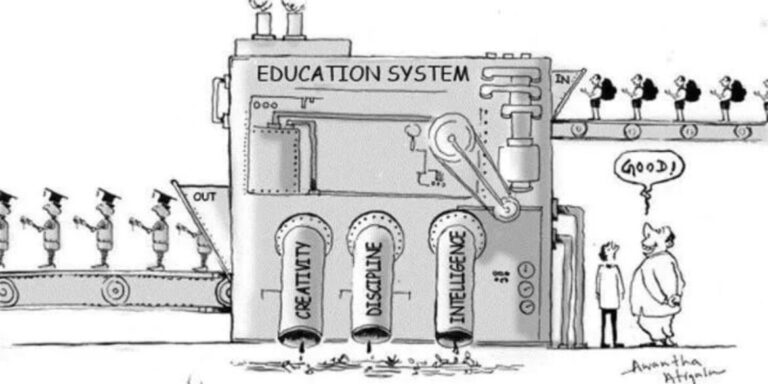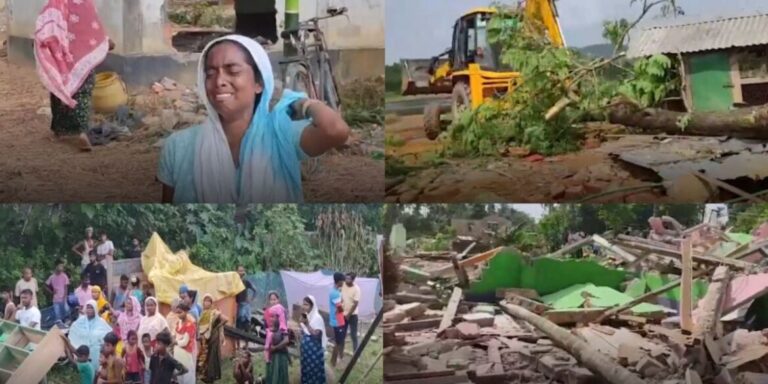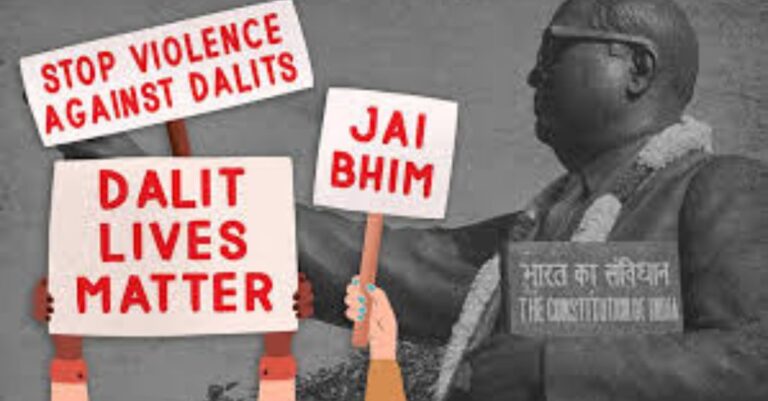Tomorrow is Mahalaya, the day when the goddess Durga is believed to have descended to Earth. It marks the beginning of Devi-Paksha and the end of the Pitri-Paksha (the Shradh or the mourning period). It is an auspicious day for Bengalis, who enthusiastically celebrate it. Mahalaya is observed seven days before the Durga Puja. And today, the eviction letter arrives, sighs Jhontu Das.
“Eviction letter issued by Railway authority has come today, sir. Where will I go at this age? I have a family of four to support. For twenty years, I have been selling tea. I have to vacate this shop within a week.”

Jhontu Das, aged 56, looked blank. He was not thoughtful. He was not angry. He was sad and terrified.
Choton Majhi is my paanwalla. After taking a glass of tea from Jhontu Da, I usually take a paan from Choton uncle, aged over 65, with a lean and thin structure, eyes small and bright but deeply socketed. His cheeks are loosened for the weight of his age.
“Sir, we all have get the eviction letter today. Only one week. Then you will not see our faces again.” He mourned and wiped his eyes with the one end of his gamacha, hanging precariously from his skeletal frame.

It was a tragic tale of two railway hawkers at Berhampore Railway Station. There were many such faces in and around the station. Some of them have a tin shed. Some have a crumpled nylon sheet overhead.
From their talks, I learned that such eviction letters were served in 37 stations in West Bengal. These stations are under the Government’s Amrit Bharat Station scheme that “aims to enhance and modernize railway stations throughout the Indian Railways network. The scheme currently intends to upgrade and modernize a total of 1275 stations across the Indian Railway system.”
“The Amrit Bharat Station scheme has a long-term vision for the ongoing development of stations. It involves creating Master Plans and executing them in phases to enhance various station facilities. These enhancements encompass bettering station accessibility, waiting areas, toilet facilities, lift and escalator installations as needed, cleanliness, offering free Wi-Fi, setting up kiosks for local products through initiatives like ‘One Station One Product’, enhancing passenger information systems, establishing Executive Lounges, designating spaces for business meetings, incorporating landscaping, and catering to the unique requirements of each station.
“Furthermore, the scheme emphasizes upgrading station structures, integrating stations with the surrounding city areas on both sides, promoting multimodal connectivity, providing facilities for individuals with disabilities (Divyangjans), implementing sustainable and eco-friendly solutions, introducing ballastless tracks, incorporating ‘Roof Plazas’ when required, and considering the feasibility and phasing of improvements. The ultimate goal is to transform these stations into vibrant city centres over the long term.”
If we read the above statement on the government website, no individual will disagree with the government policy for modernizing the railway stations across the country. The scheme offers a host of captivating measures for the “development” of the stations. The accessible Wi-Fi facility, creating spaces for executive lounges, business meetings, and roof plazas are all simply irresistible to the young and aged money-making Indians.
One Station One Product. One Country One Law. One Nation One Religion, One Nation One Language. One Country One Dress, and of course, ONE COUNTRY ONE MAN! You know the mesmerising epithets that lull us to eternal slumber by giving us sleeping pills. These phrases are misleading. It leads us to a fantasy-driven consumerist world of never-ending fun and pleasure.
Development is good for our land and its people. But do we own all our people? Do we serve all? Can we make such a tall claim? Do we have any moral rights to speak for a homogenous India, as we know, many Indias with their distinctive civilizational traits and habits exist. This diversity of land and its people is a strength of our all-encompassing national pride.
No, serving all is a giant chimaera in a country of 140 crores plus people. Modis know it. Gandhis know it.
So, what is to be done? Do something charming and beautiful by launching an offensive against the poor, the marginalized, the outcasts and the invisible. This is the only way our leaders, irrespective of their party colour, have in their murky hands. Drive the poor out of the land and offer the same to the multinationals for profit. The road map of the “development” is the same. Act for the companies and against the law-abiding poor hawkers, slum-dwellers, forest-dwellers, marginal peasants, and daily factory workers.
‘Amrit’ will be offered to a few, of course. And many will have no option but to die of hunger and poverty. Lakhs of railway hawkers will find no work. They have been supporting their family through this labour for many years. Suddenly, they find their shade gone, and the hut is razed to the ground by the very state they worship as mata and pita.
Where are the nationalists? Where are the desh-bhakts? Who will stand with the horrified hawkers? Will they be rehabilitated? Nobody knows.
Let’s go back to where we started. Jhontu Das and Choton Majhi looked quizzical and comical. Their suited-booted clients came for tea, paan and cigarettes as usual. They looked at the notice pasted on the side of Jhontu’s makeshift, read it carefully, observed the sign and seal on it, and said unanimously, “Hori Bol Hori Bol!”

Some men of learning instructed them to go to the party office. Others opined, “Dhut! Thieves! Corrupt! No power they have!”
Meantime, Lalgola Passengers arrived. People swarmed around the station. Regulars crowded around Jhontu and Choton’s sheds for a refreshment.
The sun was setting surreptitiously. Birds were chirping on the cables and the branches of the kadam tree before settling down for the night. And a dog was sleeping like a log by the side of the parking area.
References:
- https://www.india.gov.in/spotlight/amrit-bharat-station-scheme




